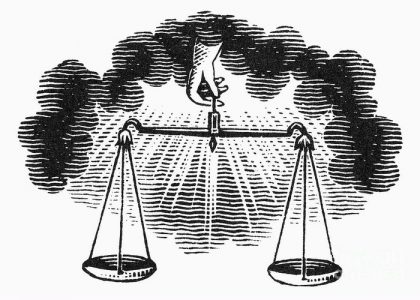
Recently, editors for the University of North Carolina–Chapel Hill’s student newspaper The Daily Tar Heel decided to use profanity in an editorial critical of the university’s handing of COVID-19 on campus (see above). Not long after in-person classes resumed at UNC, editors for its student paper wanted to express their concerns for clusters of COVID-19 springing up on campus, and how the university was handling the reporting of them. In an interview with the Journalism Institute of the National Press Club, Tar Heel editor-in-chief Anna Porgarcic explained that the newspaper felt that it shouldn’t mince words about how the COVID-19 spread was being handled and reported to members of the university community. “My opinion editor suggested [the word] to me, and I thought it was the perfect way to describe what’s happening,” she said. “There were so many questions surrounding the announcement of the clusters […] which wasn’t helped by the University’s lack of transparency about exact numbers, that we felt [the] editorial warranted something outside of our usual style. I mean, people’s literal lives — our safety, our health — are at stake because of the decisions this institution and the UNC System are making. I was unsure at first if it perhaps was too unprofessional, but it’s not our job as journalists to sugarcoat what’s going on.”
The different sides to this case are interesting. On one hand, the word might have accurately described how UNC was handling the reporting of virus numbers, if not the spread of COVID-19 on campus itself. If nothing else, the editors clearly felt that the word accurately expressed how they felt about the university managing the situation and that the word play was appropriate. On the other hand, the use of the word begs the question if the use of profanity is ever warranted in journalistic practice. This was, of course, an editorial, not a straight news story; so perhaps the use of the word fittingly tapped into the views and emotions shared among the paper’s editorial staff. If the headline was part of a news item, then the use of the word might seem more outwardly inappropriate, unless it was expressed by a source used for a story and not a term used by a journalist covering a story.
Though it may seem trivial, this case brings to mind discussion of best practices. Is it ever appropriate to use profanity in a headline or in the body of a news story? Or in a news editorial? Under what circumstances may it be done? Or should it never be done? Thus far journalism organizations such as the Poynter Institute and the Society for Professional Journalists have yet to weigh in on the case.
What do you think?
Sources: Journalism Institute; Washington Post

I would go for it but probably censor the word like “UNC has a clusterf*** on it’s hands”
If it accurately describes the situation and the emotions people are feeling, I don’t blame them
Thanks for sharing, Tom. So the use of the uncensored word is a no-go?
I think it’s appropriate given that it’s on opinion piece. It also knows its audience…written for students by students. Would I use the word in a pub geared toward my grandma? No. But I think this was spot on, as it makes the point and has its place. Unprecedented times, right?
dd
I think this boils down to an issue of whether these students at a PUBLIC university have the First Amendment right of free speech to print “clusterfuck” in a student newspaper. Unlike Creighton University, UNC-Chapel Hill is a public university, so I think these students have the right to free speech and to say “clusterfuck.” The word helps to create an attention-grabbing headline that draw readers into the story. If the students were told to euphemize the term to something like “UNC has a hot mess on its hands” or “UNC has a fiasco on its hands” it wouldn’t be as strong or have the same effect as “UNC has a clusterfuck on its hands.”
The online headline is different. To be clear, the students didn’t cave and change the headline online. According to the National Press Club Journalism Institute,
“Can you share why the headline is different for the online version?
Pogarcic: The online and print headlines were always different. We’ve gotten a few questions about it, and I want to make it clear that we didn’t change the online headline based on feedback. It’s our paper’s standard practice to have different headlines for print and online, and we thought we could switch it up for online by using a subhead instead.” (Source: https://www.pressclubinstitute.org/2020/08/17/that-clusterf-k-headline-how-uncs-newspaper-responded-to-a-covid-cluster-on-campus/)
The bigger question is would this fly at Creighton — a PRIVATE Jesuit, Catholic university? Would the faculty coordinator of The Creightonian permit the use of profanity in the headline of a main story? I think not. Creighton is private so it has its own rules on what is permissible. I think it would receive backlash from the university administration.